The Napoleon cat is a new breed with distinctive short legs and a “doll-like” face. It is one of the most popular cat breeds today. Join us to learn more about this fascinating feline!
1 Exploring the Napoleon Cat Breed
Origin of the Napoleon Cat
The name “Napoleon” for this cat breed is actually an old one, and it has since been renamed to the Minuet cat. The International Cat Association (TICA) has classified the Napoleon cat as a hybrid breed within the domestic cat group. This unique breed is a combination of two special breeds: the short-legged Munchkin cat and the flat-faced Persian cat.
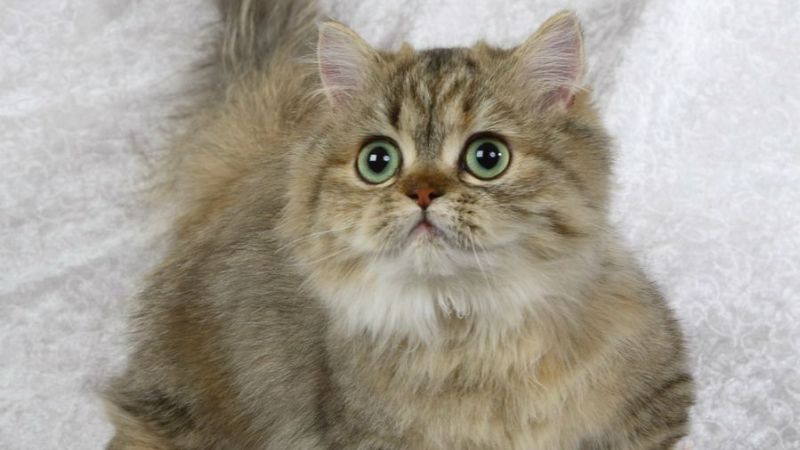 The Napoleon Cat Breed
The Napoleon Cat Breed
Joseph B. Smith, a dog-breeding expert with a particular fondness for the Munchkin cat, had a vision in 1995. He wanted to create a cat breed with the short legs of the Munchkin but a more adorable face. He decided to crossbreed the Munchkin and the Persian cat to produce the cute Napoleon cat, aiming to meet specific requirements such as:
- Napoleon cats must have short legs similar to the Munchkin cat.
- The head and eyes of the Napoleon cat should be larger and rounder.
- Additionally, the Napoleon cat’s nose should not be as flat as that of the Persian cat.
Smith set these criteria because he wanted the Napoleon cat to be a harmonious blend of the strengths of both the Munchkin and Persian breeds. A combination of the Persian’s big, round eyes, the Munchkin’s sturdy and cute short legs, and a non-flat nose.
Furthermore, the Napoleon cat is less prone to respiratory issues, a common concern with Persian cats. However, being a hybrid breed, Napoleon cats can exhibit varied traits when bred, and some may not conform to the initial standards. Smith worked diligently on breeding, developing, and promoting the Napoleon cat. In January 2015, his efforts paid off as TICA officially recognized the breed, renaming it Minuet instead of Napoleon for various objective reasons.
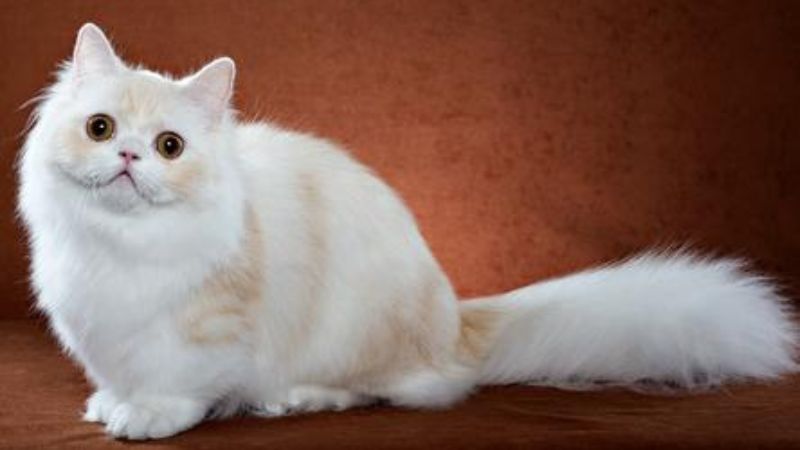 The Short-Legged, Straight-Nosed Napoleon Cat
The Short-Legged, Straight-Nosed Napoleon Cat
Personality Traits
The Napoleon cat is an excellent choice for cat lovers with young children. They inherit the playful and outgoing nature of the Munchkin, along with the affectionate and sweet disposition of the Persian. Napoleon cats quickly befriend anyone and adore playing with children. They are also gentle and get along splendidly with everyone, including other pets in the household.
One of the Napoleon cat’s hidden talents is their agility in climbing and jumping. Unlike typical lazy house cats, Napoleon cats seek pleasure in jumping and may even view it as a form of exercise. Their impressive leaps are sure to astonish onlookers.
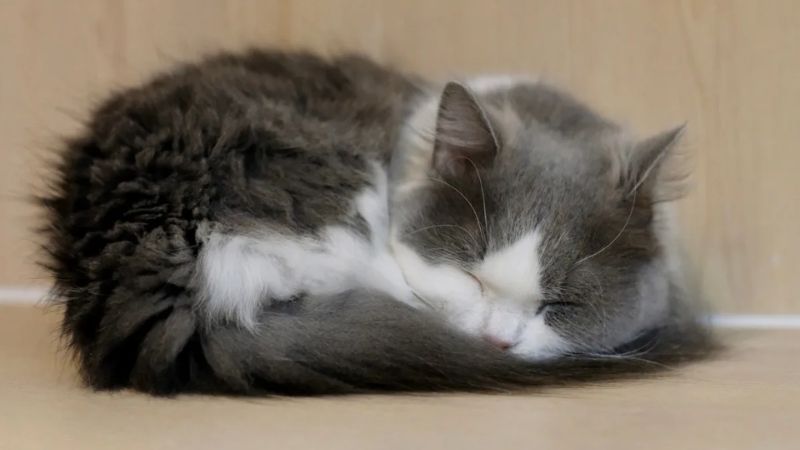 The Sociable and Harmonious Napoleon Cat
The Sociable and Harmonious Napoleon Cat
Reasons to Adopt a Napoleon Cat
Napoleon cats are excellent companions for families with young children, as they are attentive and playful with kids all day long.
They seamlessly integrate with other pets in a multi-pet household.
Napoleon cats can alleviate your worries and be your faithful companions. Therefore, choosing to share your life with a Napoleon cat is a perfect decision.
2 Caring for Your Napoleon Cat
Feeding Your Napoleon Cat
Ensure your Napoleon cat’s meals are nutritious and well-balanced. You can offer them homemade food, store-bought cat food, or even share your daily rice meals.
Grooming and Hygiene for Your Napoleon Cat
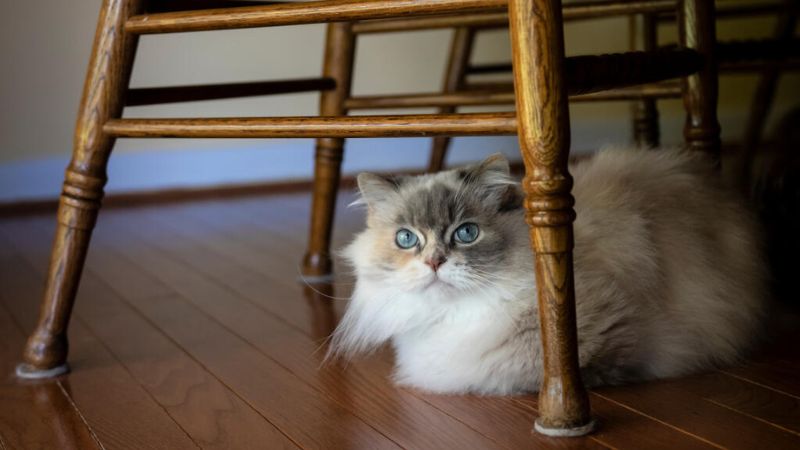 The Long and Beautiful Coat of the Napoleon Cat
The Long and Beautiful Coat of the Napoleon Cat
Caring for a Napoleon cat is not overly challenging. Any potential nose or leg issues have likely been addressed through selective breeding before you bring them home. However, it’s crucial to provide nutritious meals to support their growth and development.
Napoleon cats have relatively long fur, so investing in a good cat brush and specialized cat shampoo to prevent fleas is essential. Avoid using your own human shampoo on them.
Common Health Issues in Napoleon Cats
Napoleon cats are generally considered a healthy breed. However, due to their Munchkin and Persian ancestry, they may still be susceptible to similar health problems. Some common issues seen in Napoleon cats include:
- Cataracts
- Lordosis (curvature of the spine)
- Polycystic kidney disease
Important Considerations When Adopting a Napoleon Cat
It is advisable to acquire your Napoleon cat from a reputable source to minimize potential health and genetic issues. Ensure your new feline friend has received all the necessary vaccinations before bringing them home.
Schedule regular veterinary check-ups for your Napoleon cat every six to twelve months to maintain their health. Stay on top of vaccinations and deworming schedules. If you don’t plan on breeding, consider spaying or neutering your Napoleon cat around five months of age to prolong their lifespan.
3 Tips for Purchasing a Napoleon Cat
Price Range for Napoleon Cats
The cost of purchasing a Napoleon cat as a pet can vary, with prices ranging from $800 to $1000 or more.
Things to Keep in Mind When Buying a Napoleon Cat
Currently, the Napoleon cat is a relatively new and uncommon breed in Vietnam, and it hasn’t gained much popularity over the Munchkin cat. Therefore, if you wish to acquire a Napoleon cat, your best option is to seek assistance from reputable and well-known pet stores that can help you obtain and care for one.
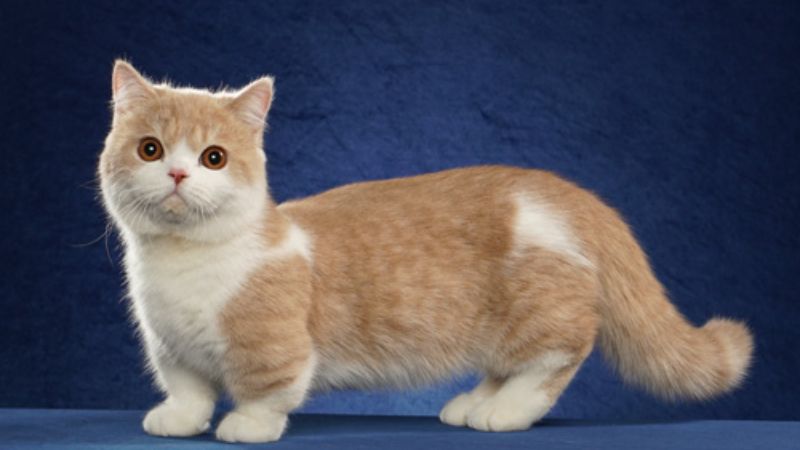 The Napoleon Cat: An Excellent Choice for Pet Owners
The Napoleon Cat: An Excellent Choice for Pet Owners
































